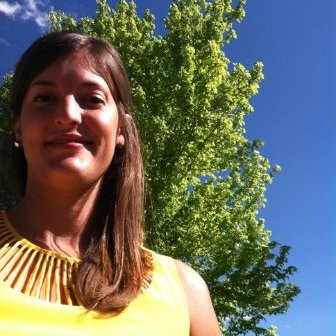
The International Fund on Agricultural Development (IFAD), a financing agency within the U.N., on Feb. 20 stuck a five-year global agreement with Unilever that aims to better train and connect smallholder farmers to the marketplace. The partnership--the first of its kind between IFAD and the private sector--will aid Unilever in reaching its ambitious goal of integrating 500,000 small farmers into its supply chain by 2020 and provide training on sustainable farming methods. The new initiative was announced at IFAD’s annual governing council meeting by Unilever CEO Paul Polman at a panel event called Small Farmers=Big Business.
No specific activities have been announced, and it is unclear where or when the partnership will unroll. So, why is this story even interesting? Two reasons: One, it shows that Unilever is taking food traceability concerns seriously and looking to get a jump over other large multi-nationals on the issue; and two, it shows Polman’s genius in the corporate social responsibility (CSR) realm. The partnership also raises some questions over just how a multi-billion dollar corporation is going to do business with one-acre farms in Timbuktu—an arrangement that often, to say the least, has mixed results.
Food traceability is all about knowing where your food is coming from. It’s no surprise that consumers are more and more interested in the source of their daily bread, with meat recalls and salmonella outbreaks becoming an all too regular occurrence, not to mention issues of underpaid workers, deforestation, pesticides, etc. More and more people—and not just the 401k’d farmers market regulars—want to feel good about what they are buying and eating and, thankfully, companies are responding.
This IFAD partnership is a way for Unilever to respond to these concerns by working with small farmers in India, Indonesia, China and other developing countries. Initial scoping plans for the partnership also include training on more sustainable farming methods, so Unilever can hit the environmental as well as economic development angles.
The question is: Will the Unilever-IFAD program, and others like it, amount to more than a really great marketing story to wrap around packaging?
The impact of this program will of course only be proven in execution, and transparency and sound oversight will be key to the process. As a global company with $68.4 billion in annual turnover, Unilever obviously would have insane leverage over smallholder farmers in any normal transaction. But as a quasi-public agency, IFAD has a responsibility to provide transparency around program protocols and results.
While Unilever has done relatively well to provide transparency to its own sustainability claims (an outside accounting firm audits company metrics, but without much detail on methodology), there is still some marketing sleight of hand. For example, the company claims that it has helped 45 million people gain access to safe drinking water since 2005—by selling its line of water purifiers in India, Bangladesh and other emerging markets with high incidences of water-borne disease. Water purifiers in India are a growth market that bring profit to Unilever and, incidentally, improve consumer health. (Their cheapest model in India is $20; the average monthly per capita income in that country is about $124).
In order for businesses today to survive, they have to think and operate globally and respond to customer concerns about social inequality and environmental health. Still, there is a fine line between business-as-usual and “change the world capitalism”; Unilever is really good at toeing it.
It is no secret that the IFAD initiative will be more than just a transaction between Unilever and shareholder farmers—it's also a brilliant market play. The company needs new customers in the developing world to sustain its growth. The same Sustainable Living Plan that aims to source agricultural materials sustainably and “enhance the livelihoods of people across [the] value chain” also has the company doubling growth by 2020. In order to achieve this, Unilever is taking a profitable volume growth strategy, in large part focused on creating new customers and new products in emerging markets (which account for 55 percent of revenue). The company’s growth is very much tied up in the economic well-being of its current or would-be customers in poor countries. By working with IFAD and smallholder farmers, Unilever is not only making its its supply chain more sustainable, it is also trying to ensure it has a sustainable customer base for years to come.
This is why Paul Polman is the sweetheart of the CSR crowd and investors. He can find that overlapping sliver in the Venn diagram of shareholder concerns (profitable growth) and the concerns of rich world consumers (products traced to fair sources). But what really makes him unique is his ability to play the long-game. He actively seeks out long-term investors as shareholders, rather than speculators looking to make a quick turnaround, which allows him more space to test the running CSR theory that improving the lot of everyone will ultimately yield sustained company returns. He is writing a new script for CEOs, like this quip from a past interview with The Guardian: "I don't think our fiduciary duty is to put shareholders first….if we focus our company on improving the lives of the world's citizens and come up with genuine sustainable solutions….ultimately this will result in good shareholder returns.”
Let’s hope he can prove himself right.
Image Credit: IFAD, Facebook

Lauren is a freelance writer based in New Orleans. She has covered a wide array of geographies and topics, from economic and business developments in the Arabian Gulf, to arts and culture in Turkey, to social enterprise and the microfinance sector in Southeast Asia. She's also worked on the business side of things, with two years experience in strategy and marketing at a large renewable energy firm. Keep in touch: @laurenzanolli and lauren.zanolli@gmail.com.














